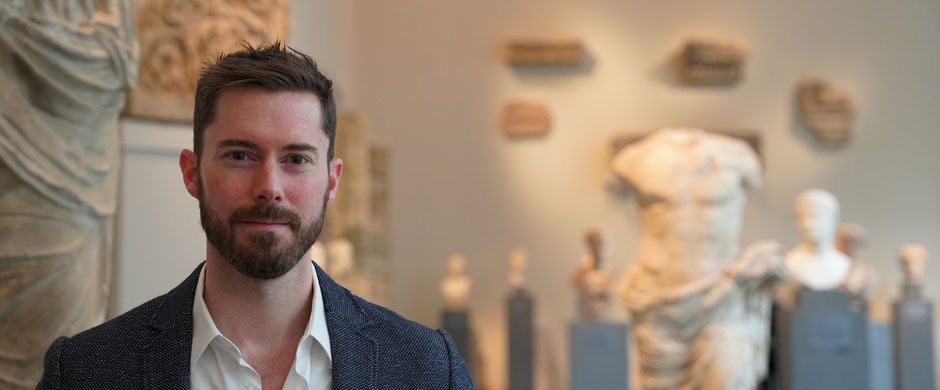I work on visual, spatial and physical experience; processes of making and maker communities; and the composition of sociocultural practices through the physical crafting of goods among the peoples of the ancient Mediterranean region. I studied Theater and Classics at Northwestern University and received my Masters and PhD in Greek and Roman art from The University of Texas at Austin. The widely interdisciplinary and global perspective of the doctoral program led me to embrace research that reaches across traditional cultural, temporal and geographical boundaries, and judiciously mixes methodology and theory to test new perspectives.
My first book, The Genesis of Roman Architecture (Yale, 2016), is a study of art and architecture in Rome up to the mid fifth century BCE. It focuses on two aspects of object-oriented connections: first, those tying buildings/builders in Rome with communities across the Mediterranean, and, second, the reciprocal relationship of spatial production and social activity in the generation of an urban landscape. My second book, Unbound from Rome: Art and Craft in a Fluid Landscape, 650-250 BCE (Yale, 2024), is an investigation of makers, materials and the role that craft communities play in the fabrication of sociocultural practices. It also takes as a central tenet the dismantling of imperialist culture-conglomerates, including the notion of a Roman world or Roman period as well as the multiplicity and fragmentariness of material lifeworlds. I have also published articles on the gestation of the Roman Forum, Temple of Jupiter Optimus Maximus, Rome’s first and most enduring colossal temple, and object biography, among other subjects.
A central feature of my work is collaboration, and I have directed or co-directed four major research initiatives, two of which are ongoing: the Antefixa Project and the Quirinal Project. The first of these is a long-term scientific, digitization, conservation and object analysis project, focused on architectural sculpture from multiple sites (and many museums) in Italy dating from ca. 625-50 BCE. Its goal is to trace networks, movements and actions of maker and creative labor communities by way of the comparative study of replicated and non-replicated materials. Collaboration across fields is essential to the project, especially with regard to scientific analysis and hi-fidelity 3D imaging, and it is rooted in a cooperative approach with multiple institutions in Italy. The Quirinal Project is focused on the comprehensive publication of a site in the heart of Rome with a 2500-year use life, from approximately 650 BCE to the present and includes what may be Rome's earliest monumental domestic structure, a portion of large fortification wall and a sanctuary. As co-director, I work with the Soprintendenza Speciale di Roma to develop a new museum on the site.
Past project direction has included the Collections Analysis Collaborative (CAC) and the Rice Seminar on Forgery and Antiquity. The CAC was a digital research and educational initiative to investigate the provenance and social history of ancient objects in the Menil Collection in Houston, Texas, and to explore how open collaboration between museums and scholars can shed new light on challenges in an era of cultural stewardship. It culminated in the publication of the volume Object Biographies (Menil Collection and Yale University Press, 2021). The Rice Seminar on Forgery was a year-long think tank that brought together eight scholars for collective and independent study on the notions and practices of forgery as it relates to the ancient world. The seminar resulted in a major international conference and the volume Forgery Beyond Deceit: Value, Fabrication, and the Desire for Ancient Rome (Oxford University Press, 2023)
I am a Fellow of the American Academy in Rome, Elected Member of the Institute for Advance Study, Princeton, and has received fellowships and residencies from the American Council of Learned Societies, the Getty Research Institute, the Netherlands Institute for Advanced Study, and the Institute for the Study of the Ancient World.





